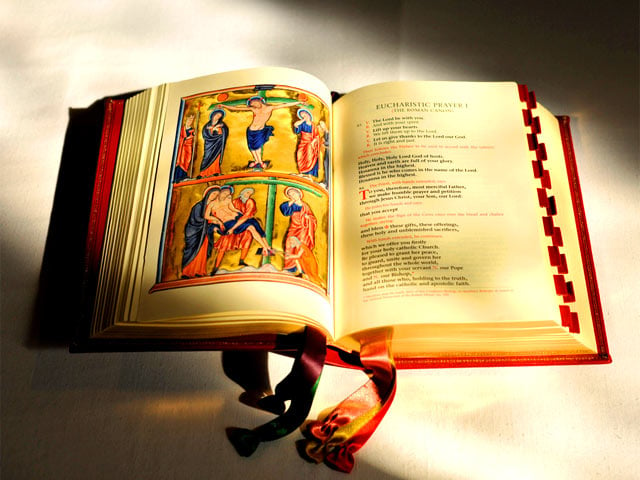- Home
- A nossa comunidade
- A nossa fé
- Os nossos sacerdócios
-
Vida paroquial
- Calendário de eventos
- St. Aidan's Video Links
- Blog Paroquial
- Arquivo de notícias
- Mass Etiquette and Information
- Ad Orientem News and Facts
- Catholic Links
- Prayers and Announcements
- Luis Dizon Reflections - Archive
- Boletim informativo
- Contacte-nos
- Search

Israel’s Salvation (2nd Sunday of Advent)
Click here for this Sunday’s Readings
Baruch presents the story of how Jerusalem had been utterly humiliated because of her being taken captive by Babylon. This unfortunate captivity came about due to her sins and her turning away from God (Baruch 1:15-2:10). Yet God will not turn away from Jerusalem forever, and the book presents the Jews as repentant and asking God for deliverance from their predicament, ending with God’s promise of restoration.
Today’s reading is strongly reminiscent of the language found in the latter half of Isaiah (chs. 40-66). Its closest parallel is Isaiah 40:3-5, which speaks of God’s deliverance in similar terms, and may have directly influenced this passage:
A voice cries out:
“In the wilderness prepare the way of the Lord;
make straight in the desert a highway for our God.
Every valley shall be lifted up,
and every mountain and hill be made low;
the uneven ground shall become level,
and the rough places a plain.
Then the glory of the Lord shall be revealed,
and all flesh shall see it together,
for the mouth of the Lord has spoken.” (Isaiah 40:3-5)
This passage is a reminder to the Jews in exile that if they repent and seek God, God will vindicate them and will personally come to lead them to their land. The language is strongly reminiscent of the language of the Exodus, which points to a recurring motif in the prophetic books of the return from Babylonian Exile being a type of second Exodus, which is even more miraculous and providential than the first.
Finally, we see a direct parallel between this reading and Isaiah 40:3-5, and the coming of John the Baptist to announce the arrival of the Messiah in the Gospels. The passage from Isaiah is even quoted as being fulfilled by the Baptist (Mark 1:3). This points us to the spiritual reality of our own spiritual exile due to sin, and how God has come in the person of Jesus to lead us out of that exile.
In the context of Advent, we reflect upon this great mystery of how the Exile in the Old Testament prepared the way for the coming of the Saviour. We rejoice at His first coming, and wait expectantly for His second.
J. Luis Dizon
